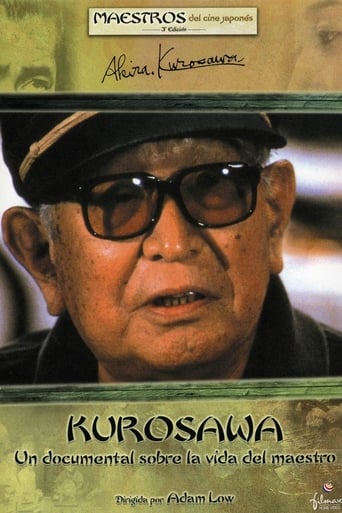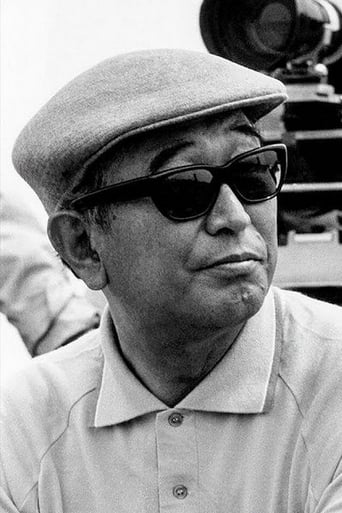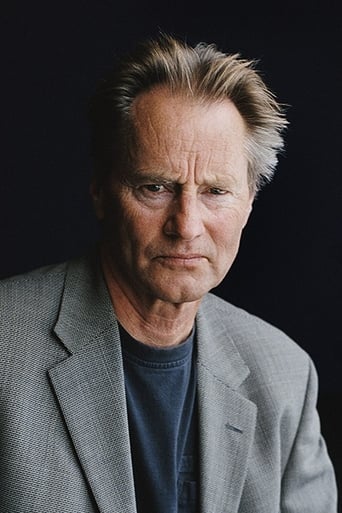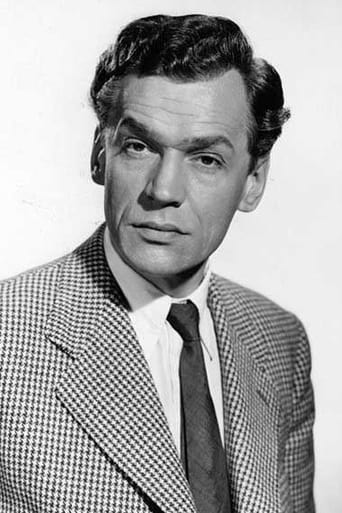

Kurosawa (2000)
Documentary on film maker Akira Kurosawa
Watch Trailer
Cast


Reviews
This is basically a 2 hour retelling of the life's work of Akira Kurosawa. Who I think has had a bigger impact on cinema than anybody else I have ever seen. This is not only insightful into his life, but a little bit of advertising, mainly because I wanted to see movies like Dodeska-Dan (which bombed on first release).I really enjoyed this one. Especially when talking about the bad things that happened in his life. You really do feel sorry for the guy when hearing about some of the stuff that happened. Stuff like the earthquake in the 1920's (which made me want to watch Kagemusha when it referred back to the quake).If you have the slightest interest in Kurosawa then please watch this documentary. You will not have your time wasted.
I would love to see a real filmmaker (Wim Wenders? Scorsese?) tackle Kurosawa - this documentary has it's moments but its' omissions are a little shocking. The earliest bits - detailing Kurosawa's youth and family were most appealing (in spite of the re-enactments); about 1/3 of the way in this documentary really loses steam, offering few insights into Kurosawa's work - with some shocking omissions: STRAY DOG, THE IDIOT, BAD SLEEP WELL, LOWER DEPTHS, HIDDEN FORTRESS and HIGH & LOW aren't touched upon, and are all essential to understanding Kurosawa's working methods and worldview. The voice-over text holding this doc together is largely drawn from Kurosawa's own 'Something Like An Autobiography,' which focuses on his early career; apparently the filmmakers felt it adequate to leave off with that, before wrapping things up with a brief look at his 80s comeback. This was very much a miscalculation.I did enjoy the late James Coburn's reflections upon SEVEN SAMURAI - Coburn came off more like a fanboy than a grizzled veteran, and had his detailed and affectionate appreciation rubbed off on the makers of this documentary it might've really been more of a success. Seeing Japanese screen icon Machiko Kyo was a real treat, and Kurosawa colleagues and scholars like Donald Ritchie and the great Kon Ichikawa were welcome presences; I wished they were given more time to offer opinions. Overall this is no waste of time, but if you're already a fan of Kurosawa, you won't get much out of this either.And if you're really interested at getting into the thoughts, processes, themes and philosophies of Kurosawa, check out some of his less well-known films, the ones ignored here. The hits are as great as they are, but the intricacies of films like RED BEARD, LOWER DEPTHS, IKIRU and STRAY DOG are fascinating, complex and present a well-formed creative universe far more vast than anything suggested in this documentary.
How can a biography on Akira Kurosawa, who felt his life was devoted to the films he wrote and directed, and whose themes centered around the behavior and psychology of the characters, be justified when it fails to even mention 15 of his 32 movies, and does little more than allude to a few key periods in his life?Writer/director, Adam Low, rather than offering substantive information on Kurosawa, felt it more important to provide about 30 minutes of facts and 90 minutes of stretched out long meaningless scenes, including several of modern-day Japan, it's technological advances (do we remember what digital tv/dvd corporations were promoted here?), modern day looks at surviving cast and crew, etc. It felt like a lazy, rushed project.I would think that anyone that watches this documentary would want to walk away with some reasonable amount of insight to either his professional or personal life (if not both). It fails badly on both counts- I give this documentary 2/10 (or 1 out of 4 stars).
Spoilers herein.I'm skeptical of projects like this. A great artist is no more defined than that his work stands on its own. Kurosawa's work does. He is one of less than a half dozen people who invented film and thereby changed the way we dream.I believe in biographies of historical characters, because a convincing case can be made for history as a collection of human actions, not ideas. So it makes sense to understand some of those people in some way. But art is different. Different enough that if we talk about the life, it has to be the life of ideas.Pollock was a drunk. So what? The recent film of his life reduced his work to an unexplained obsession. What's interesting and important with that?Anyway, the rationale behind these projects, this one surely, is an appreciation of a life, despite the repeated information that he was all film and nothing else. We do get snippets of some work, but largely wrapped around some fact: his difficulties with management, his financing, the hotel room he used when writing the script. A huge `discovery' is presented when explaining that a childhood expedition to see corpses from the great earthquake is reflected in later films. Some lip service is given to his intensity and commitment. But nowhere can we find something about his ideas of visual grammar. We don't get any insight into the subjectivization of the camera, the revolution he wrought.I'm sure that this was financed with school libraries in mind, so they dumbed it down to match TeeVee notions of what biographies are all about. But I am also sure that this master would rather see a film about him, centered on the work and with no dialog at all. None, even words as well intoned as those by Shepard and Scofield.




